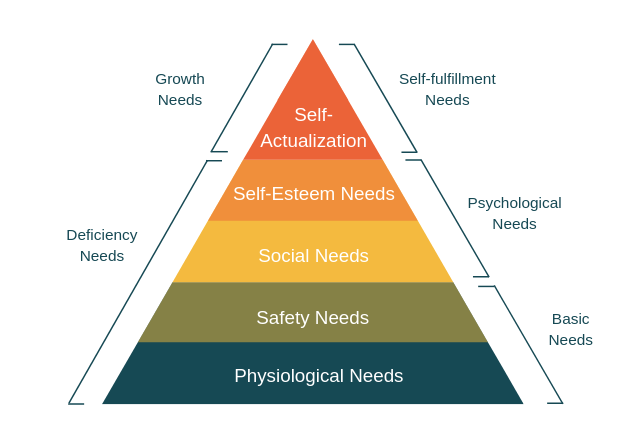
I’ve been meaning to pick up writing again for quite some time, but well… anyone else having trouble finding the motivation to get things done? I’m usually one of those people who decides to do something and just does it. These days I have half-finished projects lying all around the house–constant reminders of my inefficiencies. Terrific.
From everything I read on social media and in the news, I am not alone. Life has changed drastically in the last six months. From pandemic to politics, current events are making us more isolated from each other. We are all experiencing overwhelming change. We have all lost something and those losses are traumatic.
Trauma is defined as “the experience of severe psychological distress following any terrible or life-threatening event. Sufferers may develop emotional disturbances such as extreme anxiety, anger, sadness, survivor’s guilt, or [Post-Traumatic Stress Disorder]. They may experience ongoing problems with sleep or physical pain, encounter turbulence in their personal and professional relationships, and feel a diminished sense of self-worth due to the overwhelming amount of stress” (Psychology Today). Sound familiar to anyone?
I’d always thought trauma was the stuff of soap operas and people in war-torn countries, but the more I understand about it, the more it has become a lens through which I view the world: everyone has some level of trauma. Understanding trauma will help us all get through this insane time in a way that supports each other and builds up our community.
A popular framework on which to pin our common experience is Maslow’s Hierarchy of Needs. In this hierarchy, people work hard to get their basic needs met first–food, water, safety–the things at the bottom of the pyramid. Once their basic physiological and safety needs are sufficiently met, their focus moves upwards, to meeting their psychological needs– friendship and self-esteem. Only when they have their basic and psychological needs met can people grow as a person–finding happiness and self-fulfillment through self-actualization. On the flip side, trauma pushes people back down toward the lower levels of the pyramid, where they are back to focusing on basic needs.

This concept became useful when my husband and I were foster parents. Our job was to help a child who has experienced some sort of trauma move through these different levels of needs. They came to our house, a safe place where their basic needs are met, to begin the long process of learning to trust the world again. To trust that they can thrive, and that they can rely on other people again. People are willing to grant foster kids a lot of grace, because they recognize their trauma; we need to start recognizing each other’s trauma, too, and grant everyone that same grace.
Just like foster kids, everyone experiencing trauma does weird things. It is fairly common for a kid who has been deprived of food to hide snacks away in little squirrel caches; it’s also likely for someone who craves social interaction with friends during a pandemic to gather together in unsafe ways. The kid stealing food may confuse their caregivers, who haven’t deprived them of anything; someone throwing a gathering may upset others who aren’t willing to take as much risk during the pandemic. In both situations, the person experiencing trauma may unwittingly make someone angry or confused by their choices and this can confound everyone’s ability to fulfill their needs.
An elderly friend of mine, who has been very been very isolated during the quarantine told me whenever she sees her family, she is always masked up and six feet apart. Recently, when her daughter and son-in-law came over, they didn’t wear a mask. When they left one of them hugged her, saying, “I’m just going to break the rules this once, because I can’t help but hug you.” She is normally calm and collected, but this situation made her downright mad: she is spending more time in the basic safety level of the hierarchy, while her family member is more focused on their psychological social needs. In this case, their needs are in conflict. The resulting anger and tension put a damper on their get-together. These sorts of constant clashes are exacerbating everyone’s need deficit.
All this to say that, during this this time, we need to recognize where other people are on this spectrum of trauma and what need they are intuitively trying to meet in the moment.
We expect other people to be where we are. On a good day, I am at the top of the pyramid. I might be focused on my kids getting their chores done, on them learning a new skill and being a more productive member of the family. This goal is at the top of Maslow’s Pyramid, where I’m sitting. Meanwhile, my kid is focused on the fact that they haven’t seen their friends properly for months and the news report they overheard that said over 1,000 people a day are dying in the United States; they may not have it in them to learn how to clean the bathroom mirrors. When we are thriving, we need to recognize when other people are not and to make sure we have realistic expectations.
I can’t always let my kid have a pass when they need to do their chores, but I can sweeten the deal on a bad day. I can give them a chore I know they like to do or offer up some milk and cookies when they finish. I can be extra careful around my elderly friend by keeping my mask on around her and keeping my distance when chit-chatting in the front yard. My acknowledgement of her boundaries will make her feel safe.
A great rule of thumb to help push people up the pyramid is to work towards making each level of pyramid even more stable. If someone is struggling to feel safe, a strictly socially distanced coffee together will allow them to stop thinking about quarantine protocols and enjoy someone’s company for a change. Bringing food to someone struggling financially will give that person more bandwidth to put towards other things. If they don’t have to worry about food, they can focus more on their relationships or even just get lost in a favorite TV show for 30 minutes. (While we’re on the subject, donate to your local foodbank if you are able.)
It’s also important to tell the people around you when you are struggling because they will find more grace for you when they know what’s going on. Likewise, we need to forgive ourselves for being unproductive and losing it once in a while. During this tense time, we can all be a little more forgiving of others’ poor behavior and apologize for our own when it pops up… and it will. Healthy boundaries are important, so if you are in an abusive or unhealthy relationship, please seek help.* But to the rest of us, the more we can show each other love and kindness through this period of collective trauma, the more we can prop each other up and get closer to being productive members of thriving communities again.
Love your neighbor. We’ll get through this together.
*If you are in an abusive situation and need help, contact the National Domestic Violence Hotline at 1-800-799-7233 or if you are unable to speak safely, you can chat at thehotline.org or text LOVEIS to 22522. You are not alone.
